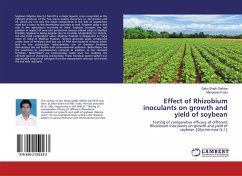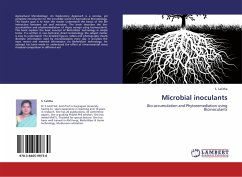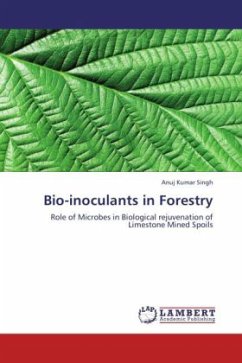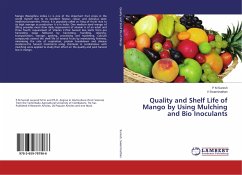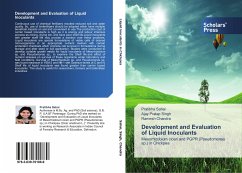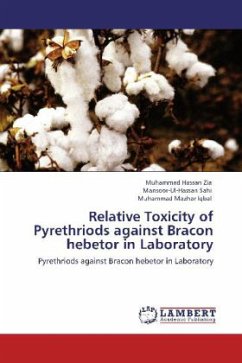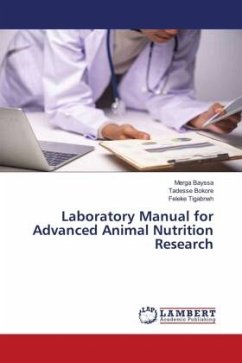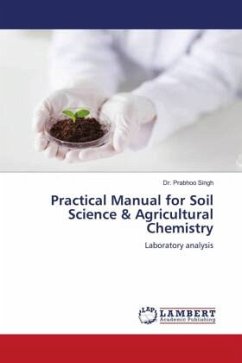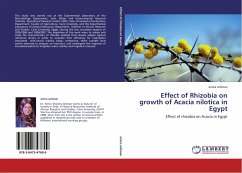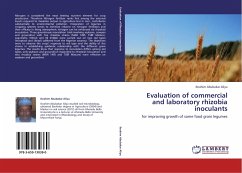
Evaluation of commercial and laboratory rhizobia inoculants
for improving growth of some food grain legumes
Versandkostenfrei!
Versandfertig in 6-10 Tagen
45,99 €
inkl. MwSt.

PAYBACK Punkte
23 °P sammeln!
Nitrogen is considered the most limiting nutrient element for crop production. Therefore Nitrogen fertilizer ranks first among the external inputs required to maximize output in agriculture but in turn, contributes substantially to environmental pollution. Integration of legumes in cropping systems serves to minimize reliance on nitrogen fertilizers and their efficacy in fixing atmospheric nitrogen can be enhanced via rhizobial inoculation. Three greenhouse inoculation trials involving soybean, cowpea and groundnut with five rhizobia strains (MAR 1495, TSBF Mixture, Legumefix, HiStick and IRj ...
Nitrogen is considered the most limiting nutrient element for crop production. Therefore Nitrogen fertilizer ranks first among the external inputs required to maximize output in agriculture but in turn, contributes substantially to environmental pollution. Integration of legumes in cropping systems serves to minimize reliance on nitrogen fertilizers and their efficacy in fixing atmospheric nitrogen can be enhanced via rhizobial inoculation. Three greenhouse inoculation trials involving soybean, cowpea and groundnut with five rhizobia strains (MAR 1495, TSBF Mixture, Legumefix, HiStick and IRj 2180A) were carried out on two soil types (Inceptisol and Ultisol) collected from the Nigerian savanna. The objectives were to observe the crops response to soil type and the ability of the strains in establishing symbiotic relationship with the different grain legumes. The results show that response to inoculation differs among soil types, only soybean and groundnut responded to rhizobial inoculation and two rhizobia strains (MAR 1495 and TSBF Mixture) were effective on soybean and groundnut.



